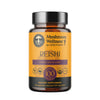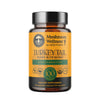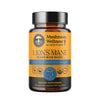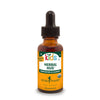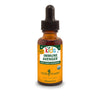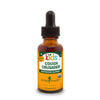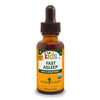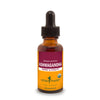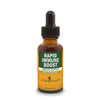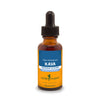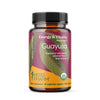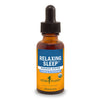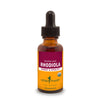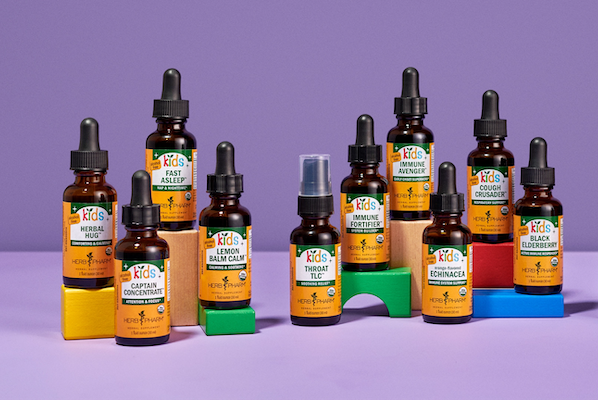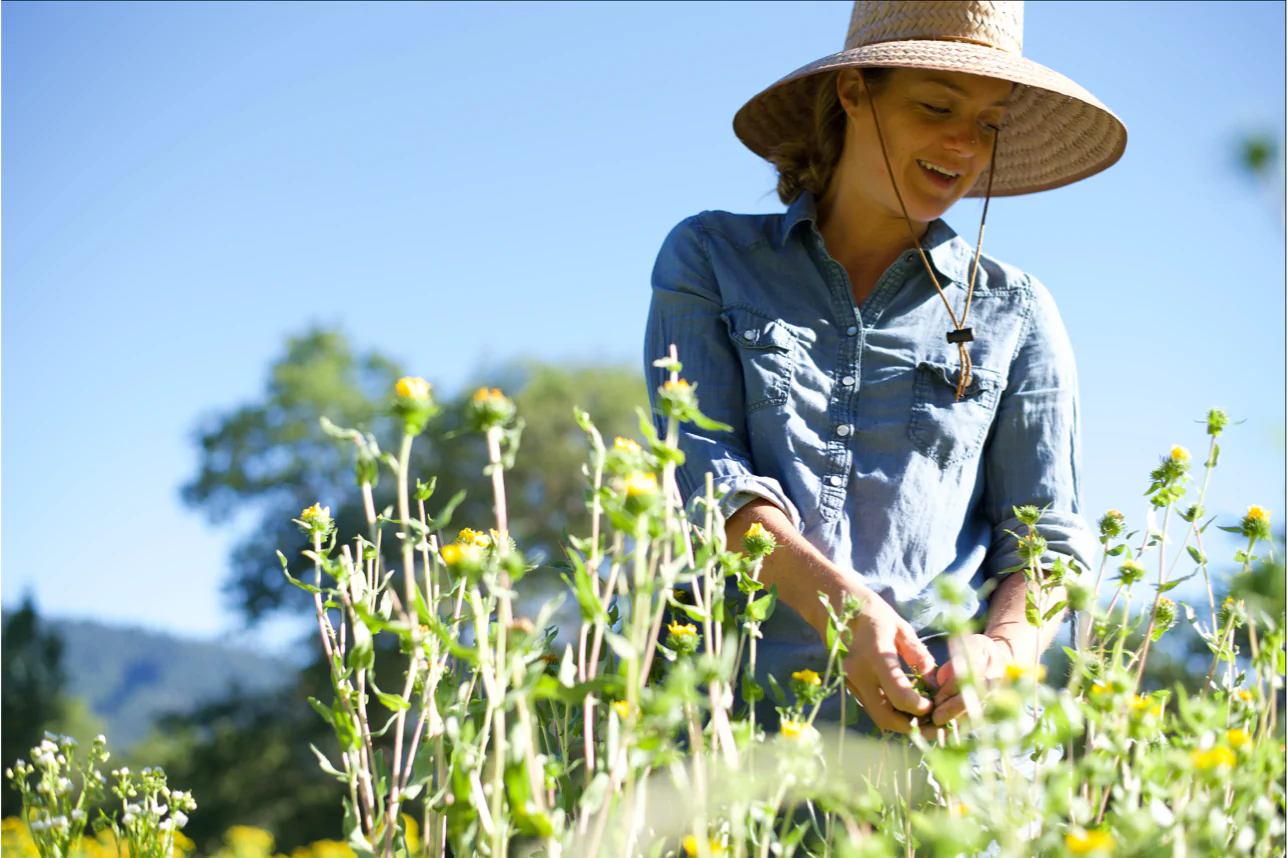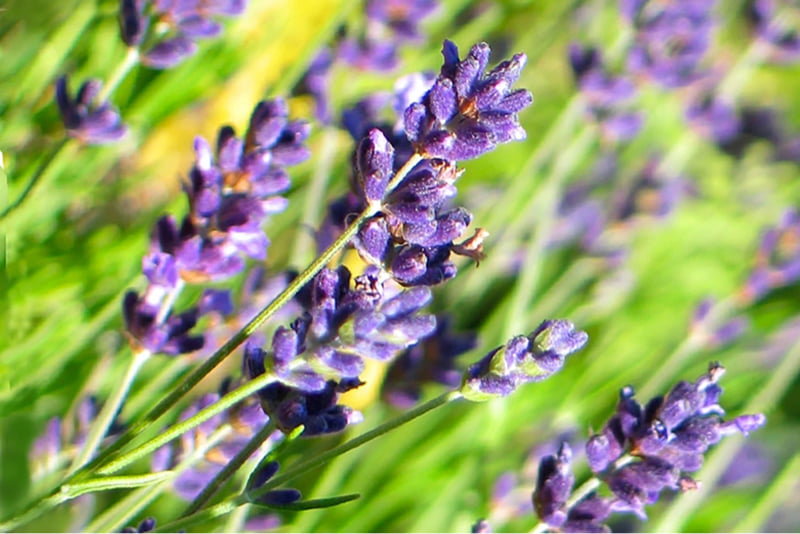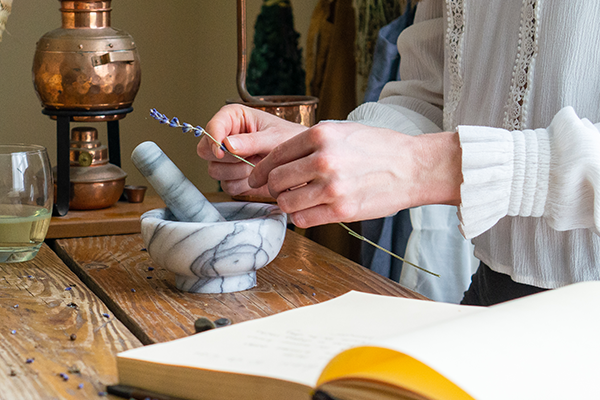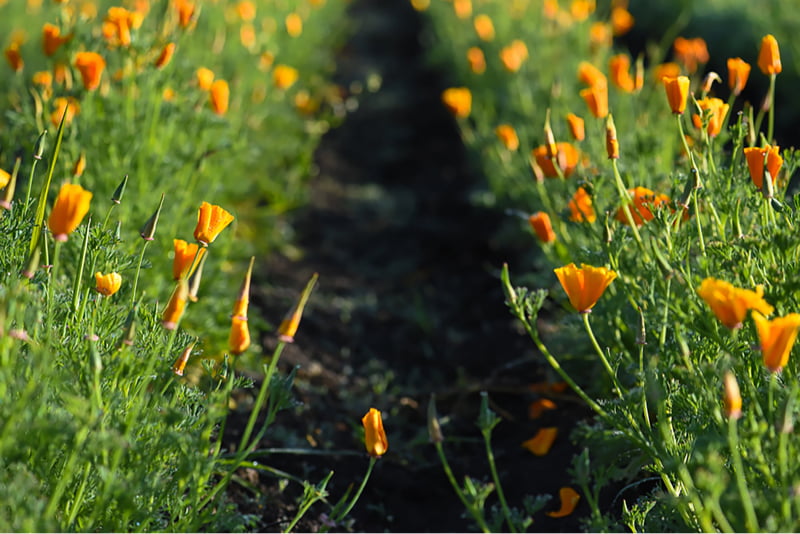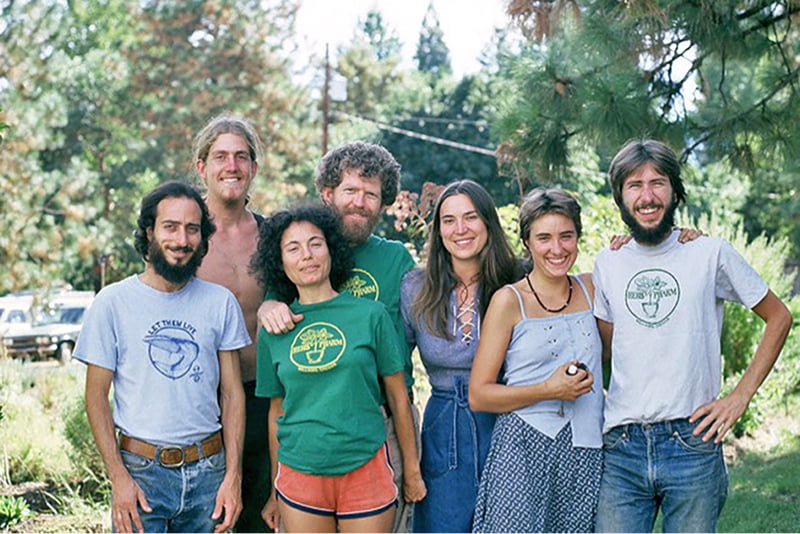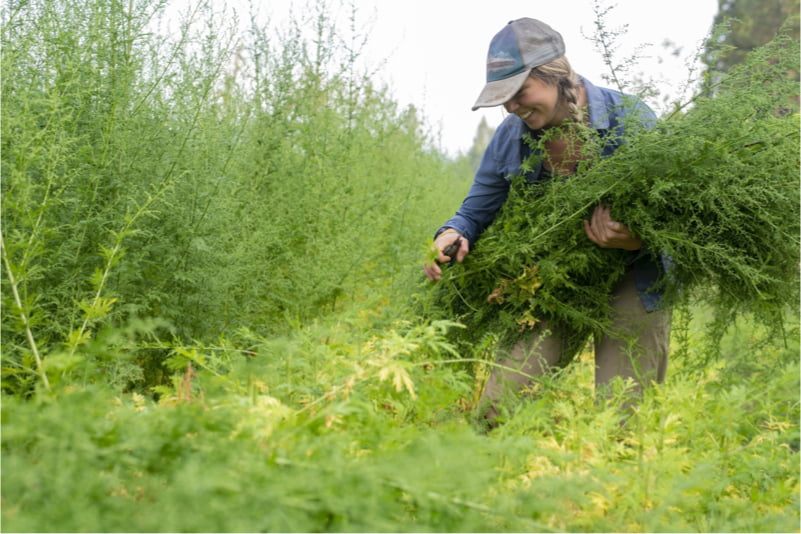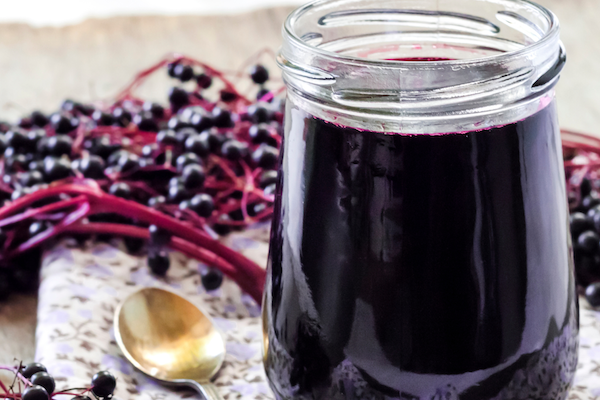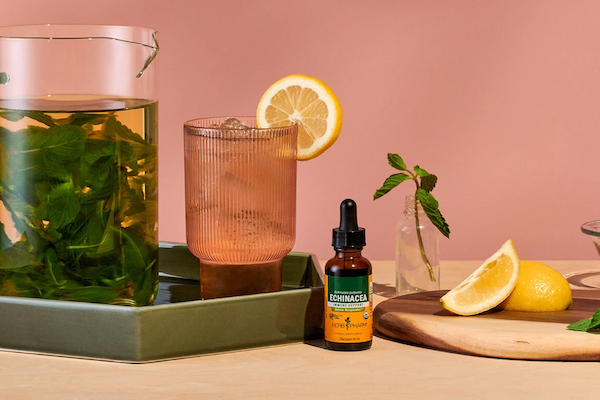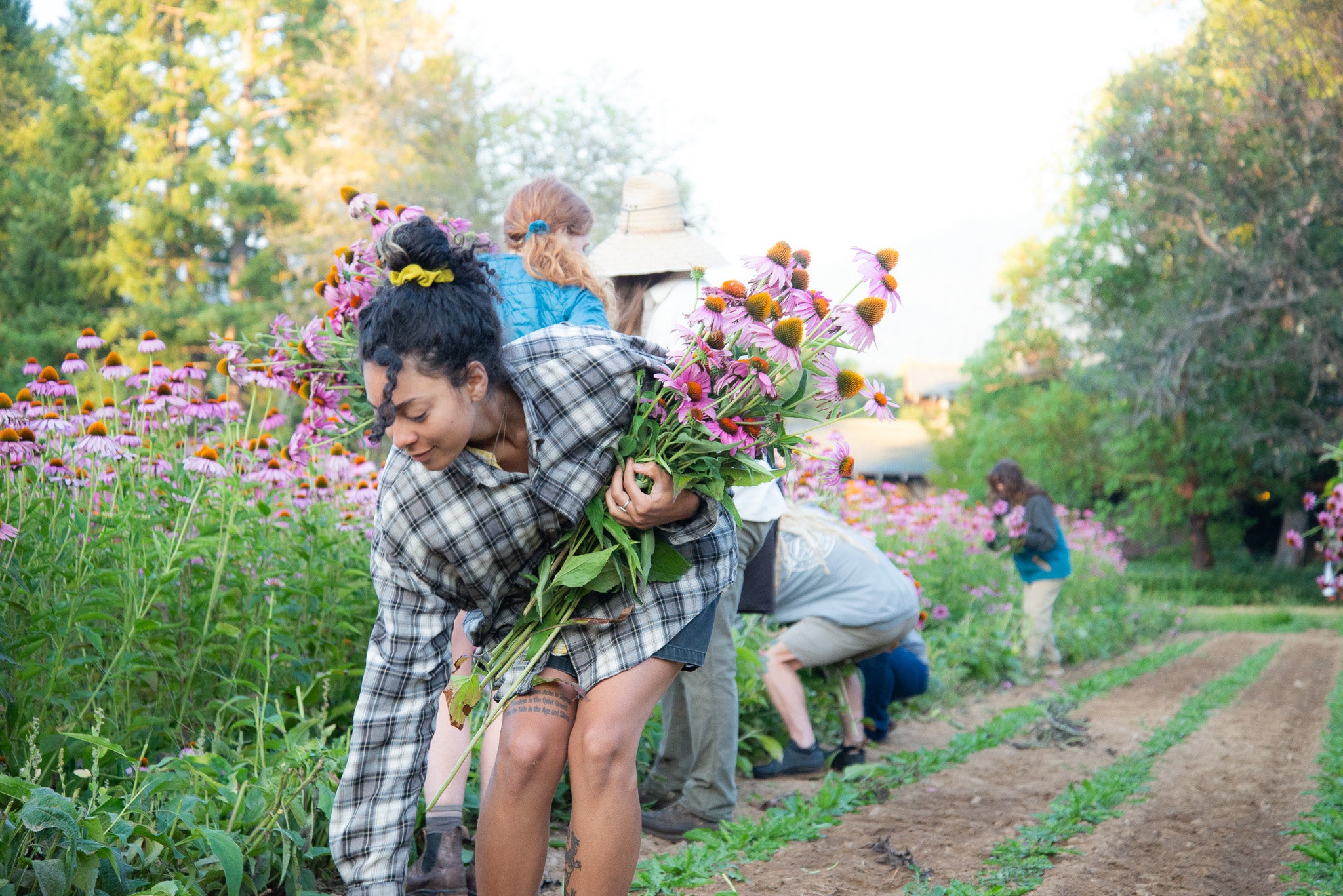You may have noticed mentions of “regenerative” and “organic” agriculture in our blogs and social posts about
our Certified Organic farms here in southern Oregon. Meeting the requirements for regenerative agriculture
and organic certifications are two of the ways we nurture our land.
Our approach to farming is not a “cause” for us; it’s part of our ethos. Since Herb Pharm’s founding back in
1979, we’ve done our best to give back to the Earth and take only what we need. We see ourselves as stewards, and, as such, we protect and preserve
our own community and those we work with. We do our part to leave things better than we found them.
Amid the climate crisis, this work is even more imperative. The planet is in trouble, and humans are
responsible. As individuals, as good corporate citizens and as a B Corp™, it’s up to us to help.
In 2018, we were selected to join the Regenerative
Organic Certification pilot program. This holistic agriculture certification has robust requirements
for soil health and land management, and encompasses fairness for farmers and workers. We’re honored to be a
part of this select group of farmers going above and beyond organic growing practices.
In the coming months and years, you’ll be hearing more about regenerative organic agriculture, so we thought
we would share more about the ROC program and why this movement matters so much.
What is Regenerative Agriculture?
Conventional farming is a major contributor of atmospheric greenhouses gases and depletion of soil-based
carbon. However, regenerative farming uses natural practices like composting, cover cropping and
conservation tillage to reverse agriculture’s impact on our planet’s climate. “Regenerative organic” is a
term coined by Robert Rodale, the son of organic farming visionary J.I. Rodale, to describe a type of
farming that goes even further than sustainable or organic methods.
According to the Rodale Institute, we only have about 60 years’ worth of topsoil left if we continue
with the status quo. However, regenerative organic agriculture is designed to improve the soil, rather than
simply maintain it. Regenerative agriculture is “a holistic approach to farming that encourages continuous
innovation and improvement of environmental, social, and economic measures.”
The environmental, social and economic measures are what truly differentiate regenerative organic agriculture
from organic farming. This isn’t about only our farm or only this year’s crops. It’s about all of us, now
and in the future.
ROC: a new type of certification
While you won’t find this ecolabel on products (yet), Regenerative Organic Certification is a goal for many
companies like ours. The program provides a series of steps for farmers and ranchers that relate to all
operations. For farmers like us as well as those making food, cosmetics and fibers, ROC encompasses the
whole soil-to-shelf process, while for ranchers, it covers an animal’s entire life cycle. Every step of the
way, the certification ensures that we’re keeping more carbon in the soil (rather than depleting it) and
that all workers and animals are valued. Regenerative Organic Certification “leverages existing high-bar
organic, animal welfare, and social fairness certifications, and includes additional regenerative
requirements.”
ROC is a group effort, the work of farmers, ranchers, brands, non-profits and other organizations, and it is
spearheaded by the Regenerative Organic Alliance, a group of experts in farming, ranching, soil health,
animal welfare and farmer and worker fairness. They oversee and update certification requirements.
About the ROC Pilot Program
We’re part of the ROC Pilot program, the only herbal company among the nearly two dozen companies
participating. More than 80 groups and brands applied, and, to be accepted and ultimately achieve ROC
certification, we have to comply with three pillars: soil health and land management, animal welfare and
worker fairness.
Our Farm Manager Matt Dybala and his team have been implementing the program’s pillars into our existing
practices. The ROC provides different paths for each type of company and farmer participating.
How we manage the soil and land
While we’ve always worked to boost the health of our soil and land, the ROC has specific guidelines for us to
follow, some of which are new. Healthier soil is richer in carbon and more biodiverse, to better mitigate
climate change.
Some of the ROC soil and land practices include:
-
Biological soil testing: This is a major indicator of how each farm in the ROC program is
improving organic matter and increasing soil carbon levels. Under organic certification, farmers test
soil to determine available nutrients before applying fertilizers. However, soil testing completed to
meet ROC requirements is based on calculating microbial populations, evaluating microbial health and
diet, and building better long-term carbon stores in our farm’s soil overall.
-
Closed nutrient loops: There are also specific benchmarks that restrict the amount of imported
nitrogen used as fertilizer. This promotes the building of on-farm fertility by growing legumes as cover
crops, which makes atmospheric nitrogen available to crops after being digested by healthy microbial
populations in regenerative soils. Closed nutrient loops rely more on internal resources to reduce
greenhouse emissions related to the manufacturing and transportation of farm fertilizers and products.
-
Agroforestry: We do not permit logging on our farms or take down healthy trees to make room for
our crops. Every year, we actively plant trees, resulting in more living roots working in partnership
with mycorrhizal fungi in the soil. Scientists have found larger concentrations of soil carbon stored
deep in the extensive perennial rooting systems of trees.
-
Biodiversity: Increasing native plant and animal populations is a key benchmark for regenerative
certification. Enhancing biological diversity is directly related to the overall ecological health of
each farm location.
-
Conservation tillage: A commitment to reduce topsoil disturbance and avoid bare soil conditions
maximizes the total amount of carbon dioxide pulled from our atmosphere by plants over time. Reduced
tillage practices also minimize the loss of carbon once it is stored underground in our farm’s soil.
-
Compost: We amend the soil with compost, including the marc left over from extracting herbs.
Composting reduces water evaporation, recycles on-farm crop nutrients and inoculates our topsoil with
living organisms.
-
Cover cropping: Our cover crops reduce topsoil erosion from wind and water, create organic
residue for a healthy microbial diet and mediate habitat loss for native pollinators, reptiles and
amphibians. Ultimately, at least half of a farm’s carbon is fixed above ground in plants, which is why
we dedicate almost half of our growing acreage to cover cropping.
-
Healthy crop rotation: We increase soil biodiversity and carbon sequestration by avoiding
monoculture annuals and by moving toward a polyculture system of long-term cover crops, trees, shrubs,
herbaceous perennials and diverse annuals.
-
Perennial crops: Many of our herbs are perennials and will remain in our fields for multiple
growing seasons. This results in less topsoil disturbance over time. A continuous green cover of growing
plants increases soil microbial biomass, organic residue and overall carbon stores in a farm’s topsoil.
-
Riparian areas: Munger Creek and several small streams (some seasonal) flow through our farms in
Josephine County. We restore wetlands along our creek banks by planting hundreds of trees and shrubs, to
keep water temperatures cool and reduce bank erosion. This ensures good habitat for local fish to lay
their eggs and provides a safe buffer for amphibians.
Together, these regenerative agriculture practices boost the ecological resilience of our farm, as well as
the planet as a whole.
